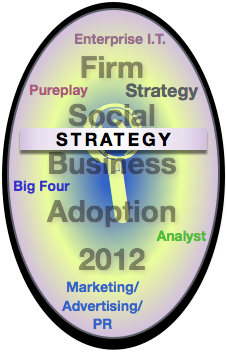 [UPDATED] Strategy firms are the most trusted names sought by CEOs and boards of directors who are reevaluating their companies’ identities, strategies and operations. Strategy firms have been making measured investments in social business over the last few years. Their knowledge of enterprise transformation is deep and broad, and they all have proprietary methodologies for most aspects of the strategy and transformation life cycle. They have deep and broad expertise in market analysis, competitive analysis corporate core competency analysis and virtually all aspects of operations. Many firms have large business transformation practices that explicitly guide clients through profound redefinition and change. [UPDATED] Strategy firms are the most trusted names sought by CEOs and boards of directors who are reevaluating their companies’ identities, strategies and operations. Strategy firms have been making measured investments in social business over the last few years. Their knowledge of enterprise transformation is deep and broad, and they all have proprietary methodologies for most aspects of the strategy and transformation life cycle. They have deep and broad expertise in market analysis, competitive analysis corporate core competency analysis and virtually all aspects of operations. Many firms have large business transformation practices that explicitly guide clients through profound redefinition and change.
Strategy firms have extensive core competencies that could enable them to offer social business strategy services. In addition, Strategy firms are significant producers of thought leadership relevant to corporate and business strategy as well as operations. Most firms field high quality management journals whose papers are written by their consultants. Many have research boutiques or even full-fledged businesses for research and thought leadership. However, they are challenged by very conservative […]
![Social Media Upgrade [Social Business Team Building] case1](http://rollyson.net/wp-content/uploads/2013/04/sbtb1.png) [Updated] The Social Media Upgrade applies to most consumer-oriented brands that have been outsourcing much of their social media work to agencies. In 2013, digital marketing and brand executives are thinking about building their internal teams to provide more continuity and scale. [Updated] The Social Media Upgrade applies to most consumer-oriented brands that have been outsourcing much of their social media work to agencies. In 2013, digital marketing and brand executives are thinking about building their internal teams to provide more continuity and scale.
Social Media Upgrade is the first of the five-part social business team building series The series describes team building in the context of various scenarios in which firms build social business capability, step by step, while investing wisely. Social Business Strategy Use Cases outlines and compares all five use cases while Social Business Team Building gives general guidance for how to create social business teams as well as recommendations for what characteristics leaders have, so I recommend reading them, too.
[…]
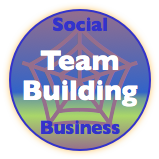 [UPDATED] Several times over the past few years, I have been contacted by major brands to advise them on finding a “social media executive” to help them “figure out social media” and “create a strategy.” In 2012, many firms began building social media teams in earnest, and this trend will continue to grow in the years ahead. Firms are also bringing “social media work” inside after having outsourced it to agencies. All of my client work has involved helping clients to build social business competency and teams, so here I’ll offer some pointers for how to build teams and avoid the pitfalls most companies experience. [UPDATED] Several times over the past few years, I have been contacted by major brands to advise them on finding a “social media executive” to help them “figure out social media” and “create a strategy.” In 2012, many firms began building social media teams in earnest, and this trend will continue to grow in the years ahead. Firms are also bringing “social media work” inside after having outsourced it to agencies. All of my client work has involved helping clients to build social business competency and teams, so here I’ll offer some pointers for how to build teams and avoid the pitfalls most companies experience.
Although each organization’s culture is different, the CEO, CDO, CMO or CAO will be happier with the social business investment if s/he doesn’t invest far ahead of return on investment, which remains low at firms that insist on “business-meaningful” metrics, not the PR- or “brand-building” variety. It’s a chicken-and-egg challenge: how do you know what kind of team to build until you’re achieving real business-meaningful returns on your social business initiatives?
[…]

You can create more opportunity with a career mission, especially when you don’t get distracted by traditional career or job search concerns like whether you have a “consulting” or “employment” relationship. Here I’ll share how you can create far more opportunity by changing your assumptions about work, tapping the Social Channel and aligning yourself with the emerging Knowledge Economy. To illustrate the point, I’ll use myself as an example because I’m a veteran of many types of “work arrangements.”
It’s the good news-bad news story of the almost-decade: legacy “work” and “jobs” have permanently gone by the wayside as the primary means for people to be productive in “modern” economies (bad news). However, people can create a higher quality of life by adopting a more flexible approach to work, and organizations are crying out for flexibility (good news).
[…]
Unusual strategy & management guide shows how to use social data to solve complex problems 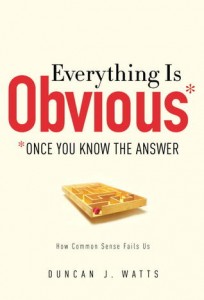 Book Review: Everything Is Obvious* Once You Know the Answer/Duncan J. Watts Book Review: Everything Is Obvious* Once You Know the Answer/Duncan J. Watts
Everything Is Obvious* is an excellent how-to guide to understanding how social networks change strategy, prediction and decision-making. It offers practical techniques and profound insights for using social networks, big data and new ways of thinking to solve complex problems in business and government.
Intriguingly, the book also cites research that debunks several social media sacred cows.
Watts has an interesting point of view because he combines several disciplines: he began his career as a physicist before moving into sociology, so he strives to combine the quantitative, experimental methods of physics with maddeningly complex social problems. Moreover, he’s been running practical experiments at Yahoo! for several years, using search, Web and social data. Watts backs up his assertions with primary research that he has led or in which he has participated. He is also a very engaging writer.
I also highly recommend “Obvious” because it enables […]
 Branch disruption enables unusual opportunity for bank executives who consider transforming their relationships with clients. More generally, retail banking provides an excellent example of an Industrial Economy industry whose services are facing commoditization and weakening profits due to the waning of the Productized Channel of Value. In 2013, bank branch networks are under intense scrutiny because they are expensive, and client visits have been falling steadily for several years as e-banking and m-banking adoption have accelerated. Astute banks will use branches to transform their client relationships by leveraging the Social Channel. Here’s how they will do it. Branch disruption enables unusual opportunity for bank executives who consider transforming their relationships with clients. More generally, retail banking provides an excellent example of an Industrial Economy industry whose services are facing commoditization and weakening profits due to the waning of the Productized Channel of Value. In 2013, bank branch networks are under intense scrutiny because they are expensive, and client visits have been falling steadily for several years as e-banking and m-banking adoption have accelerated. Astute banks will use branches to transform their client relationships by leveraging the Social Channel. Here’s how they will do it.
[…]
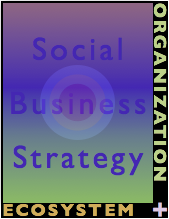 The social business Organization Audit serves as the second half of the due diligence process that is the foundation of the social business strategy. The first part is the ecosystem audit by which the firm has assessed the external digital world that’s relevant to its business. However, this is only half the picture: now we need to assess the firm’s capabilities to engage the ecosystem, so this is an internal analysis. The social business Organization Audit serves as the second half of the due diligence process that is the foundation of the social business strategy. The first part is the ecosystem audit by which the firm has assessed the external digital world that’s relevant to its business. However, this is only half the picture: now we need to assess the firm’s capabilities to engage the ecosystem, so this is an internal analysis.
By conducting external and internal due diligence, we arrive at a social business strategy that optimizes the what the ecosystem values most highly with the firm’s ability to deliver. The social business strategy marries the ecosystem audit with the organization audit to determine optimal sharing scenarios (pilots).
The social business Organization Audit begins with a basic core competency analysis, drills down to stakeholder issues & actions and synthesizes these steps into several “trial pilots” that it will then vet through several other steps: social business good practices uses the ecosystem as a filter to learn from other firms’ similar initiatives, resource analysis gauges […]
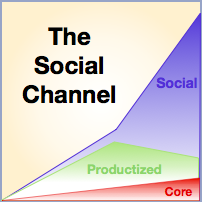 The Social Channel of Value explains our era’s drivers of economic transformation and how leaders can use them to strengthen their careers, organizations and communities. Profound shifts in human beings’ means of production restructure society and business because they alter the amount of “value” human work can create as well as the type of “products” that encapsulate people’s work. Individuals and organizations that notice, observe and understand these shifts early on can improve their relevance and competitiveness. Many of those that do not respond quickly enough go down with the ship. The Social Channel of Value explains our era’s drivers of economic transformation and how leaders can use them to strengthen their careers, organizations and communities. Profound shifts in human beings’ means of production restructure society and business because they alter the amount of “value” human work can create as well as the type of “products” that encapsulate people’s work. Individuals and organizations that notice, observe and understand these shifts early on can improve their relevance and competitiveness. Many of those that do not respond quickly enough go down with the ship.
Since the Social Channel is so important, I have published the Social Channel Trilogy, which is summarized here. Find even more information on the Social Channel home page.
[…]
 Social business policy (social media policy) engagements are some of the most interesting, revealing and critical engagements CSRA has done. Of course, organizations’ main motivation for creating social business policies is protecting themselves against possible legal threats caused by employee interactions online; however, a far greater threat is overemphasizing the legal threat and sabotaging employee engagement online. Well researched and crafted social business policy increases trust between the employer and employees—and among employees, leading to more appropriate online interactions, which burnish the firm’s reputation. Here, I’ll outline how you can use the process of creating the policy to manage legal exposure while increasing employees’ trust and productive social business activity. Social business policy (social media policy) engagements are some of the most interesting, revealing and critical engagements CSRA has done. Of course, organizations’ main motivation for creating social business policies is protecting themselves against possible legal threats caused by employee interactions online; however, a far greater threat is overemphasizing the legal threat and sabotaging employee engagement online. Well researched and crafted social business policy increases trust between the employer and employees—and among employees, leading to more appropriate online interactions, which burnish the firm’s reputation. Here, I’ll outline how you can use the process of creating the policy to manage legal exposure while increasing employees’ trust and productive social business activity.
[…]
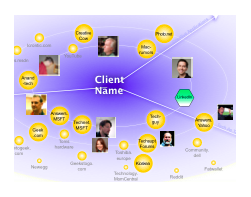 The Digital Social Ecosystem Audit shows you where to interact to produce the best outcomes at the minimal cost, so it is critical to social business initiatives. CSRA launched its “Ecosystem Audit” process in 2008, and we’ve conducted them for many businesses and brands, which get to know the digital world around them in an unprecedented way. Think of the ecosystem audit as an xray of the social ecosystem. Try operating without it ;^) – but most firms do! The Digital Social Ecosystem Audit shows you where to interact to produce the best outcomes at the minimal cost, so it is critical to social business initiatives. CSRA launched its “Ecosystem Audit” process in 2008, and we’ve conducted them for many businesses and brands, which get to know the digital world around them in an unprecedented way. Think of the ecosystem audit as an xray of the social ecosystem. Try operating without it ;^) – but most firms do!
Here I’ll offer my insights into client outcomes as well as how we’ve evolved the process and why. You will get some practical pointers about how you can do your own.
[…]
|
|
 [UPDATED] Strategy firms are the most trusted names sought by CEOs and boards of directors who are reevaluating their companies’ identities, strategies and operations. Strategy firms have been making measured investments in social business over the last few years. Their knowledge of enterprise transformation is deep and broad, and they all have proprietary methodologies for most aspects of the strategy and transformation life cycle. They have deep and broad expertise in market analysis, competitive analysis corporate core competency analysis and virtually all aspects of operations. Many firms have large business transformation practices that explicitly guide clients through profound redefinition and change.
[UPDATED] Strategy firms are the most trusted names sought by CEOs and boards of directors who are reevaluating their companies’ identities, strategies and operations. Strategy firms have been making measured investments in social business over the last few years. Their knowledge of enterprise transformation is deep and broad, and they all have proprietary methodologies for most aspects of the strategy and transformation life cycle. They have deep and broad expertise in market analysis, competitive analysis corporate core competency analysis and virtually all aspects of operations. Many firms have large business transformation practices that explicitly guide clients through profound redefinition and change.
![Social Media Upgrade [Social Business Team Building] case1](http://rollyson.net/wp-content/uploads/2013/04/sbtb1.png) [Updated] The Social Media Upgrade applies to most consumer-oriented brands that have been outsourcing much of their social media work to agencies. In 2013, digital marketing and brand executives are thinking about building their internal teams to provide more continuity and scale.
[Updated] The Social Media Upgrade applies to most consumer-oriented brands that have been outsourcing much of their social media work to agencies. In 2013, digital marketing and brand executives are thinking about building their internal teams to provide more continuity and scale. [UPDATED] Several times over the past few years, I have been contacted by major brands to advise them on finding a “social media executive” to help them “figure out social media” and “create a strategy.” In 2012, many firms began building social media teams in earnest, and this trend will continue to grow in the years ahead. Firms are also bringing “social media work” inside after having outsourced it to agencies. All of my client work has involved helping clients to build social business competency and teams, so here I’ll offer some pointers for how to build teams and avoid the pitfalls most companies experience.
[UPDATED] Several times over the past few years, I have been contacted by major brands to advise them on finding a “social media executive” to help them “figure out social media” and “create a strategy.” In 2012, many firms began building social media teams in earnest, and this trend will continue to grow in the years ahead. Firms are also bringing “social media work” inside after having outsourced it to agencies. All of my client work has involved helping clients to build social business competency and teams, so here I’ll offer some pointers for how to build teams and avoid the pitfalls most companies experience.
 Book Review: Everything Is Obvious* Once You Know the Answer/Duncan J. Watts
Book Review: Everything Is Obvious* Once You Know the Answer/Duncan J. Watts  Branch disruption enables unusual opportunity for bank executives who consider transforming their relationships with clients. More generally, retail banking provides an excellent example of an Industrial Economy industry whose services are facing commoditization and weakening profits due to the waning of the Productized Channel of Value. In 2013, bank branch networks are under intense scrutiny because they are expensive, and client visits have been falling steadily for several years as e-banking and m-banking adoption have accelerated. Astute banks will use branches to transform their client relationships by leveraging the Social Channel. Here’s how they will do it.
Branch disruption enables unusual opportunity for bank executives who consider transforming their relationships with clients. More generally, retail banking provides an excellent example of an Industrial Economy industry whose services are facing commoditization and weakening profits due to the waning of the Productized Channel of Value. In 2013, bank branch networks are under intense scrutiny because they are expensive, and client visits have been falling steadily for several years as e-banking and m-banking adoption have accelerated. Astute banks will use branches to transform their client relationships by leveraging the Social Channel. Here’s how they will do it. The Social Channel of Value explains our era’s drivers of economic transformation and how leaders can use them to strengthen their careers, organizations and communities. Profound shifts in human beings’ means of production restructure society and business because they alter the amount of “value” human work can create as well as the type of “products” that encapsulate people’s work. Individuals and organizations that notice, observe and understand these shifts early on can improve their relevance and competitiveness. Many of those that do not respond quickly enough go down with the ship.
The Social Channel of Value explains our era’s drivers of economic transformation and how leaders can use them to strengthen their careers, organizations and communities. Profound shifts in human beings’ means of production restructure society and business because they alter the amount of “value” human work can create as well as the type of “products” that encapsulate people’s work. Individuals and organizations that notice, observe and understand these shifts early on can improve their relevance and competitiveness. Many of those that do not respond quickly enough go down with the ship. Social business policy (social media policy) engagements are some of the most interesting, revealing and critical engagements CSRA has done. Of course, organizations’ main motivation for creating social business policies is protecting themselves against possible legal threats caused by employee interactions online; however, a far greater threat is overemphasizing the legal threat and sabotaging employee engagement online. Well researched and crafted social business policy increases trust between the employer and employees—and among employees, leading to more appropriate online interactions, which burnish the firm’s reputation. Here, I’ll outline how you can use the process of creating the policy to manage legal exposure while increasing employees’ trust and productive social business activity.
Social business policy (social media policy) engagements are some of the most interesting, revealing and critical engagements CSRA has done. Of course, organizations’ main motivation for creating social business policies is protecting themselves against possible legal threats caused by employee interactions online; however, a far greater threat is overemphasizing the legal threat and sabotaging employee engagement online. Well researched and crafted social business policy increases trust between the employer and employees—and among employees, leading to more appropriate online interactions, which burnish the firm’s reputation. Here, I’ll outline how you can use the process of creating the policy to manage legal exposure while increasing employees’ trust and productive social business activity.  The Digital Social Ecosystem Audit shows you where to interact to produce the best outcomes at the minimal cost, so it is critical to social business initiatives. CSRA launched its “Ecosystem Audit” process in 2008, and we’ve conducted them for many businesses and brands, which get to know the digital world around them in an unprecedented way. Think of the ecosystem audit as an xray of the social ecosystem. Try operating without it ;^) – but most firms do!
The Digital Social Ecosystem Audit shows you where to interact to produce the best outcomes at the minimal cost, so it is critical to social business initiatives. CSRA launched its “Ecosystem Audit” process in 2008, and we’ve conducted them for many businesses and brands, which get to know the digital world around them in an unprecedented way. Think of the ecosystem audit as an xray of the social ecosystem. Try operating without it ;^) – but most firms do!